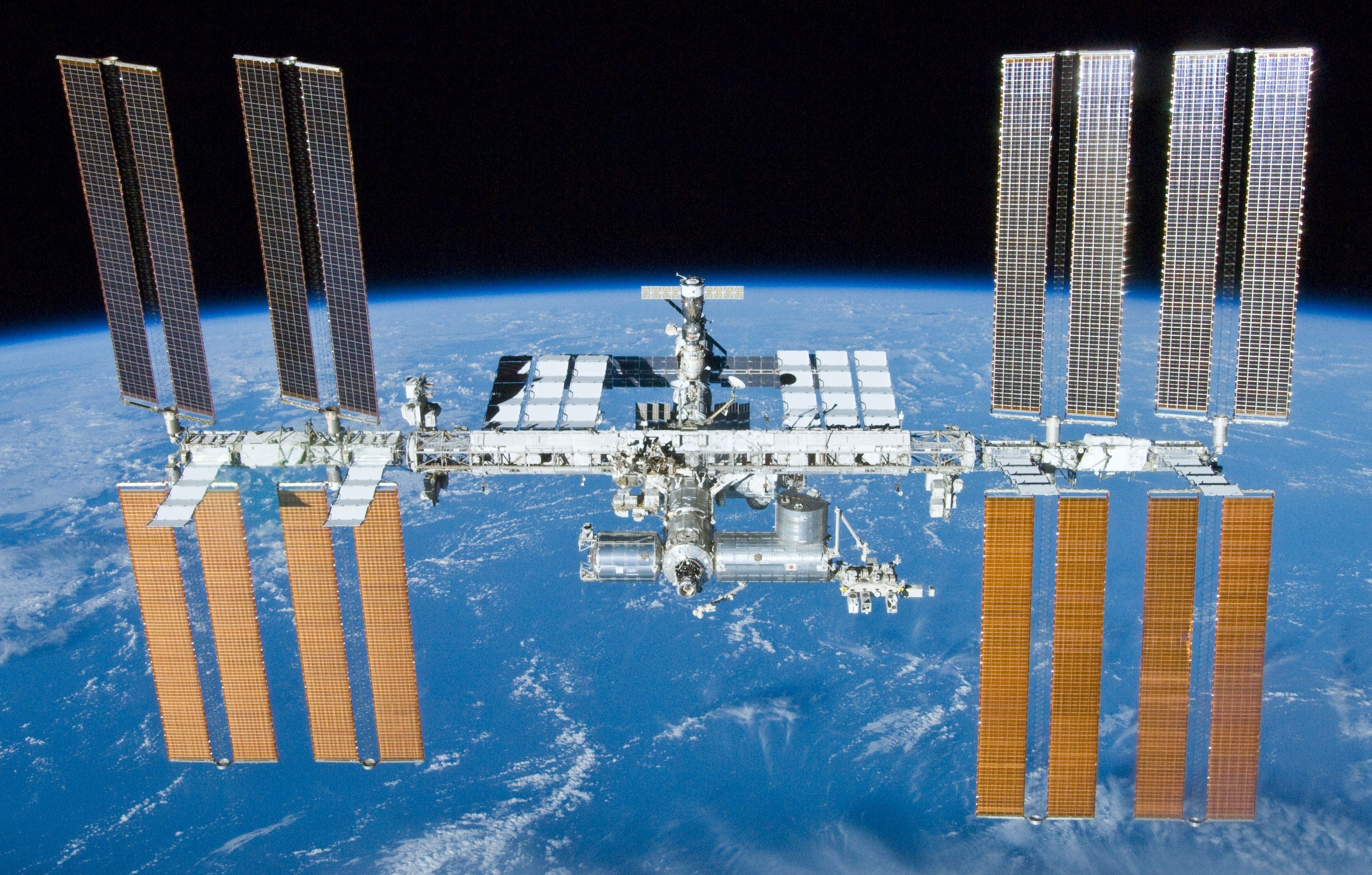The Fault Not in Our Stars: Berrigan on the Mystery of Evil
 |
| "NASA/Crew of STS-132, Public domain, via Wikimedia Commons |
A bit of pathos, though, seeped through the captain’s wry, warm-hearted optimism as he struggled to extend these personal life lessons to our fraught geopolitical situation. The ISS, Kelly plausibly claimed, is perhaps the most complex and difficult project humankind has ever attempted. Unlike, say, the Apollo missions, during which the U.S. flexed its Cold-War-toned nationalist muscles so impressively, the ISS is an intrinsically international effort entailing trust and cooperation among 15 partner nations. Kelly ruefully noted, though, his estrangement from his erstwhile partner, the cosmonaut Mikhail Kornienko, in the wake of the war in Ukraine. What’s more, in the five years between Kelly’s two stints on the ISS, he could discern the progressive devastation of the Amazon rainforest. As remarkable as Capt. Kelly is, there are millions of skilled, plucky, and decent people like him around the globe, striving to build a better world. So why can’t the human species get its collective act together?
Daniel Berrigan: Essential Writings, Selected with an Introduction by John Dear (Orbis, 2009).
In the mid 1960s, smarting from a public rebuke, the poet-priest and peace agitator Daniel Berrigan penned a provocative journal entry in Cuernavaco, Mexico. In November 1965, Berrigan had been ordered by his Jesuit superiors to leave the United States after he offered a funeral homily for Roger LaPorte, a young Catholic Worker who had immolated himself in front of U.N. Headquarters to protest the war in Southeast Asia (pp. 65-73). Dispatching this left-leaning priest to tour Latin America, it turns out, was a grave miscalculation – an exile ideally suited to further radicalizing him. In the face of overwhelming public backlash, including a full-page call-out in The New York Times, his superiors relented, allowing Berrigan to come home the following year.
Berrigan distinguishes between evil as problem (the grist of theodicies and projects) and evil as mystery. The former term names social issues inasmuch as they are the object of practical and technical interventions – that is, challenges to be faced with the skills, grit, and intentionality that Capt. Kelly extolled. The problem of evil, Berrigan writes, “is a product of history, explainable to history, assuaged to a degree, within history” (ibid., p. 76). The latter term, by contrast, gestures towards the uncanny, the inexplicable – those aspects of existence the human mind can neither conceptualize nor, assuming it’s awake, ignore. This is the nature of suffering as embraced and encompassed with the very mystery of life itself. Berrigan writes:
A will exists, which declares itself in a Human Being like us, to be a Will of Love, of concern. This Will has its design in the world, is immanent in the world. But it is not subsumed, not seized on by the world. Indeed, this Will brings the world to a term that no confluence of history, no concentration of energy or genius or human love could imagine – much less bring about (ibid.).
Human striving must continue, to be sure. After all, I note, it was Zeus, not the God of Israel, who condemned Prometheus. As Berrigan puts it:
So the end of the problem is, at least in degree, an “arrival”; a human being is in outer space; a disease is controlled; a theory is vindicated. But before mystery, we stand perpetually before an invitation so merciful, in fact, that our submission before it as well as our powerlessness to possess it is our greatest dignity (ibid., pp. 76-77).
After Capt. Kelly’s talk, I recalled the shock and rage I felt in 2011 when I heard that his sister-in-law, Congresswoman Gabby Giffords, had been shot in the head by a gunman at a Safeway store in Casas Adobes, Arizona. Six people were murdered on that terrible day, but Rep. Giffords, amazingly, survived – enduring numerous, drastic medical procedures and many months of recovery to emerge, upon retiring from the Congress, one of this nation’s most respected, tireless, and indomitable agitators against the gun violence epidemic. (Ms. Giffords, of course, is married to Scott Kelly’s twin brother Mark, also a retired astronaut, who just last year fended off a challenge to his seat representing Arizona in the U.S. Senate. This is not a family to trifle with!). Giffords’ inspiring story is a tribute to the incessant power of life and love triumphing amid a culture enthralled to violence and death. Theologically speaking, her struggle is an icon of the power of resurrection – the redemption of creation in God’s coming kingdom.
Still, from the standpoint of passing legislation and stemming the tide of gun violence, the yield for now might seem meager (though that’s no excuse to stop trying). After all, our powerlessness to possess it is our greatest dignity. For all of us on this Big Blue Marble – indeed, for the very Earth itself – this side of the Resurrection is the time of waiting – waiting under the shadow of the Cross, in hopeful anticipation for the One who comes to make all things new.
==================================
Follow @jsjackson15
Subscribe to Die Evangelischen Theologen

Comments